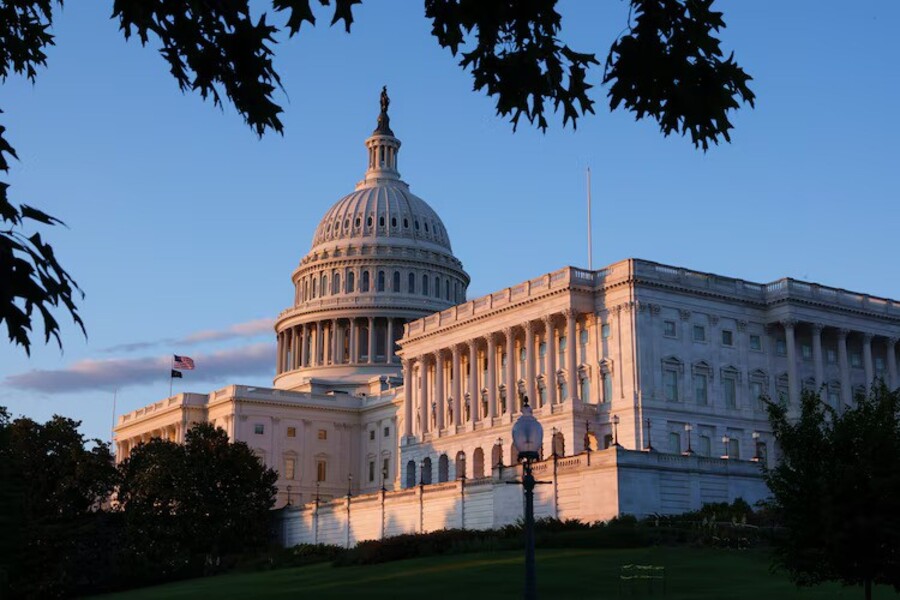As the U.S. Senate prepares to deliberate President Donald Trump’s ambitious “One Big Beautiful Bill Act,” a seemingly behind-the-scenes official is poised to become a powerful force in shaping the legislation’s final form. Senate Parliamentarian Elizabeth MacDonough will play a pivotal role in determining which parts of the bill comply with Senate rules and which must be stripped away—an authority that could dramatically alter Trump’s funding package before it ever sees a vote.
Who is Elizabeth MacDonough?
Though unelected and rarely mentioned in public discourse, MacDonough serves as the Senate’s chief procedural referee. She has held the position of Senate Parliamentarian since 2012 and is the first woman to do so since the office’s inception in 1935. Her job is to interpret Senate rules and procedures, providing nonpartisan guidance to lawmakers on what legislative provisions can or cannot proceed, especially under the arcane process of budget reconciliation.
In past high-stakes moments, MacDonough has ruled on landmark legislation, including the Democrats’ Inflation Reduction Act and COVID-19 relief package under President Joe Biden. She also advised Chief Justice John Roberts during Trump’s impeachment trials. Now, her rulings could decide the fate of several contentious items embedded in Trump’s new megabill.
What Is the Byrd Rule and Why Does It Matter?
At the heart of MacDonough’s forthcoming decisions is the Byrd Rule, a Senate guideline named after the late Sen. Robert Byrd. The rule is designed to prevent non-budgetary “extraneous” provisions from being included in budget reconciliation bills—legislation that requires only a simple majority in the Senate, bypassing the filibuster’s 60-vote threshold.
The Byrd Rule essentially mandates that any provision included in a reconciliation bill must directly impact the federal budget, either through changes in spending or revenue. Provisions that only tangentially affect the budget or are primarily policy-driven are considered out of order and subject to removal.
This vetting process is informally dubbed the “Byrd Bath,” during which the Senate Parliamentarian reviews each section of the bill to determine its eligibility. Notably, the rule also forbids changes to Social Security, as well as increases to the federal deficit outside the budget window defined in the legislation.
Why This Matters for Trump’s “One Big Beautiful Bill Act”
The House narrowly passed the funding bill, which encompasses a sweeping range of Republican policy priorities. Now in the Senate, several of those provisions are under scrutiny—not just by opposing Democrats but by Senate rules themselves. Any ruling by MacDonough that a provision violates the Byrd Rule means that portion will be automatically stripped, unless 60 senators vote to override it, which is unlikely in today’s closely divided Senate.
Key provisions at risk include:
- Artificial Intelligence Regulation Preemption: The bill seeks to prevent state and local governments from regulating AI systems for the next decade. Because this provision does not appear to affect federal revenues or spending directly, it may fall outside reconciliation guidelines.
- Federal Court Restrictions: One clause attempts to change how plaintiffs can seek relief from the federal government. Legal experts and even Republican senators like Joni Ernst have questioned whether this can be justified as a budget-related matter. Ernst recently stated, “I don’t see any argument that could ever be made that this affects mandatory spending or revenues.”
- Planned Parenthood Medicaid Ban: A clause in the bill would block Medicaid funding to any Planned Parenthood facility that provides abortion services. A similar provision was previously removed from a 2017 reconciliation bill by the parliamentarian and may face the same fate again.
What Are Democrats Saying?
Democrats have made it clear they plan to challenge many of the provisions they believe violate reconciliation rules. Senate Minority Leader Chuck Schumer signaled that Democrats are preparing to contest items in the bill that, in his words, “are in clear violation of the reconciliation rules and in some cases, an assault on our very democracy.”
Schumer emphasized the importance of the Byrd Bath, saying Democratic committee members are “working overtime” to challenge the inclusion of several policies they believe are not budget-relevant.
What Happens Next?
MacDonough’s rulings will unfold over the coming weeks as the bill undergoes detailed review by the Senate Budget Committee. Her determinations are expected to be final and binding, although they can be overridden by a 60-vote supermajority—a political near-impossibility in the current Senate composition.
If MacDonough finds several provisions in violation of the Byrd Rule, Republicans may be forced to rewrite parts of the bill or risk losing significant components of their agenda. The procedural battle could slow the bill’s progress and heighten partisan tensions as each side fights to either preserve or strike controversial provisions.
Conclusion
While President Trump and Republican lawmakers tout the “One Big Beautiful Bill Act” as a transformative funding measure, its passage now hinges significantly on Senate Parliamentarian Elizabeth MacDonough. Her role, rooted in rule enforcement rather than politics—may end up reshaping the final package and determining what policies can legally ride along with the budget bill.
User Intent Summary:
- Who is Elizabeth MacDonough? → The Senate Parliamentarian since 2012; she enforces Senate rules.
- Why is she important now? → She determines what parts of Trump’s bill comply with the Byrd Rule, and her rulings could strike out major policy items.
- What is the Byrd Rule? → A rule ensuring budget reconciliation bills only contain budget-related provisions.
- What might get removed? → AI regulation bans, Planned Parenthood restrictions, and court access provisions—all of which may violate Senate rules.
- What happens if provisions are removed? → Republicans would have to amend the bill or risk losing those priorities in order to move the legislation forward.
If you’d like this rewritten as a 1000-word article for publication or adapted to a specific outlet’s style (e.g., AP, Politico, NYT), let me know, and I can tailor it accordingly.


